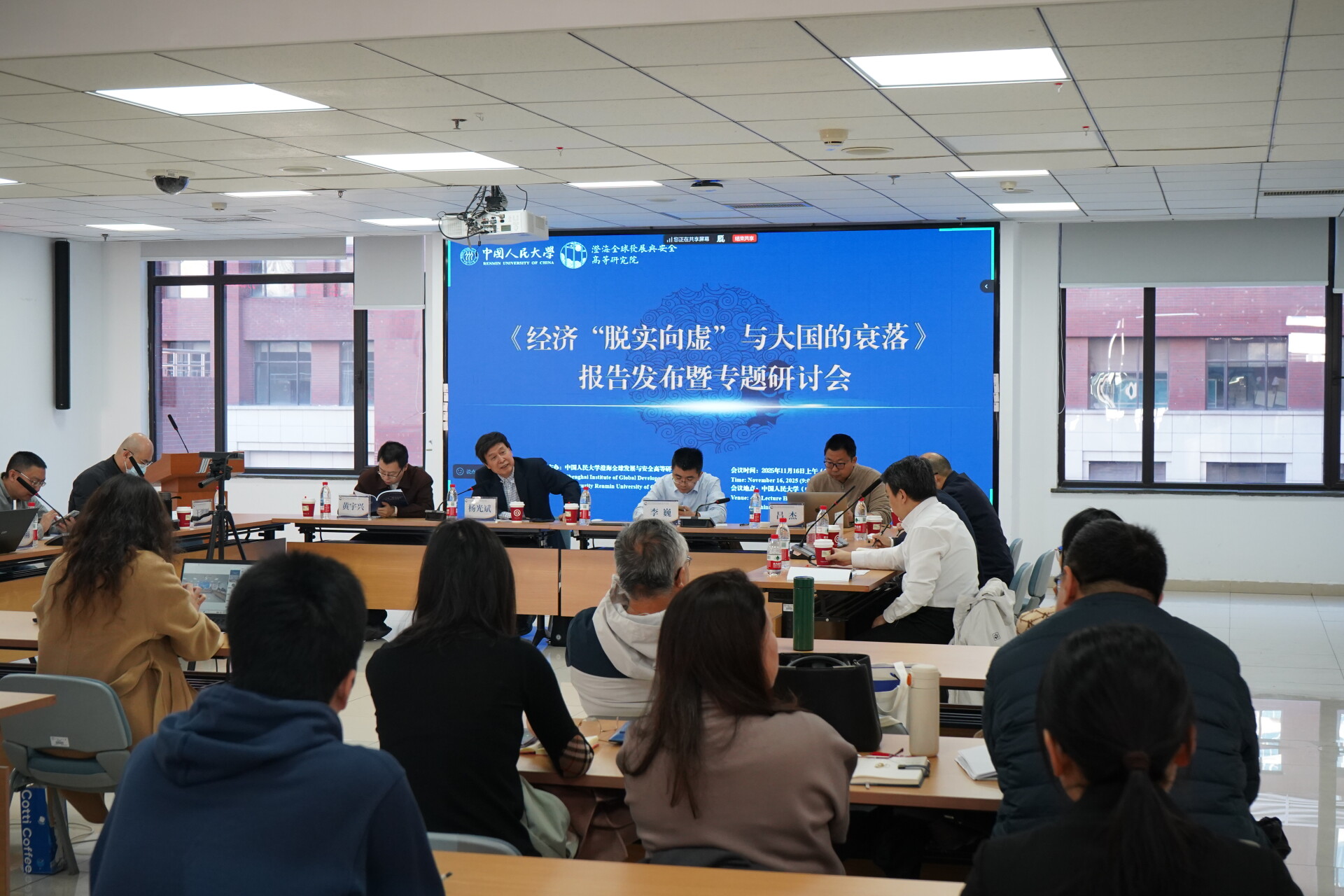
The report From Real Economy to Virtual Economy: The Decline of Great Powers was released at a symposium hosted by Chenghai Institute of Global Development and Security at Renmin University of China in Beijing on November 16 2025. (Photo: Chenghai Institute of Global Development and Security)
A group of prominent Chinese academics has challenged the dominant Western narrative of global ascendancy, arguing that economic over-financialization often marks the beginning of great power decline.
The argument was presented on November 16 at a symposium in Beijing hosted by the Chenghai Institute of Global Development and Security at Renmin University of China (RUC), where researchers discussed a new report titled From Real Economy to Virtual Economy: The Decline of Great Powers.
The study draws historical comparisons between Spain, the UK, and the United States, contending that when capital becomes detached from productive activity and begins to influence political decision-making, long-term decline becomes inevitable.
According to Yang Guangbin, dean of RUC's School of International Studies and head of its Chenghai Institute of Global Development and Security, as well as the report's lead author, prevailing Western "victory" narratives fail to account for broader economic patterns.
"Theories of Western rise suffer from significant temporal and geographic limitations," he said, arguing that the organization of real economic activity, rather than financial expansion, is the clearest indicator of sustained power.
The seminar brought together scholars from leading Chinese institutions, reflecting a growing interest in reassessing global power transitions from a non-Western perspective.
Contributors linked the report's findings to China's own policy agenda, noting a continued focus on the real economy in the country's current development plans. Yang suggested that China's mixed-ownership model could help avoid the pitfalls of what the report refers to as economic "fictionalization."
But participants also acknowledged uncertainty. Song Wei, a professor at RUC's School of International Studies, warned against relying too heavily on historical analogies. Advances in AI and automation, he said, could reorder global supply chains and affect the relevance of traditional examples. Policymakers, he argued, must focus on the resilience of high-end manufacturing and technology-driven change.
The discussion also touched on internal pressures faced by major economies. "There are three enduring tensions in economic systems: politics versus economics, efficiency versus equity, and development versus security," said Fan Jishe, deputy director general of the Institute for International Strategic Studies, Party School of the CPC Central Committee.
Efforts to reshore manufacturing in developed nations are, according to Fan, attempts to address these imbalances, though the long-term outcomes remain uncertain.
One of the report's authors, Wan Zeyu, a doctoral researcher at RUC's School of International Studies, argued that China's rise may reflect a different economic logic from that of financial capitalism.
"China's rise has profound implications for the reconstruction of the global political and economic order," he said, "as it highlights how a production-oriented socialist approach can offer an alternative to the rent-seeking logic of financial capitalism."
Reporter | Liu Xiaodi, Huang Yuhan (intern)
Editor | Yuan Zixiang, James Campion, Shen He
















